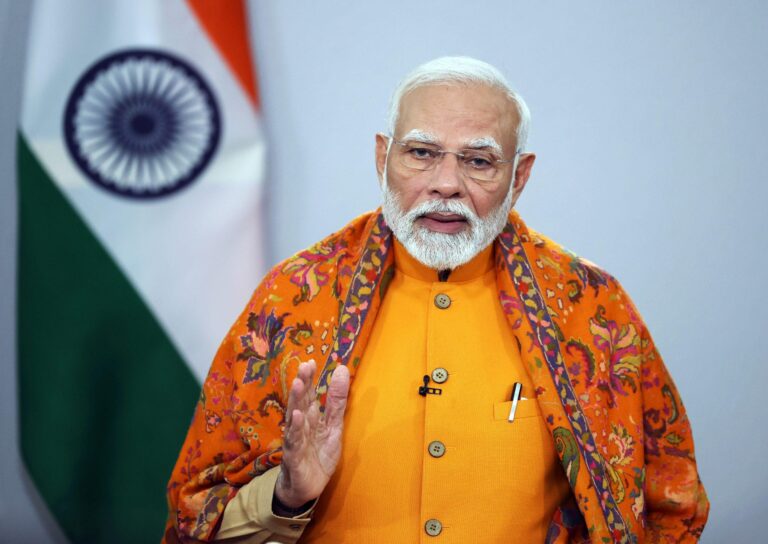New Delhi – The government of Prime Minister Narendra Modi has intensified its crackdown on dissent surrounding the ongoing conflict with Pakistan, as reported by The New York Times. In the wake of escalating tensions between the two nuclear-armed neighbors, authorities have implemented stricter measures targeting activists, journalists, and political opponents who voice criticism of the administration’s handling of the situation. This clampdown raises concerns about the shrinking space for free expression and democratic debate in India amid a charged atmosphere of nationalism and security anxieties.
Modi Government Intensifies Measures to Suppress Dissent Amid Pakistan Tensions
The ruling administration has escalated its crackdown on voices critical of its handling of the ongoing conflict with Pakistan. Numerous activists, journalists, and opposition figures have reported increased surveillance, arbitrary detentions, and censorship under the pretext of national security. Public demonstrations demanding greater transparency and diplomatic engagement have been met with heavy police presence and restrictions on assembly, signaling a stark shift toward an authoritarian approach in managing internal dissent.
Key elements of the intensified suppression include:
- Enforcement of strict internet regulations, leading to widespread social media blackouts in sensitive regions.
- Use of sedition and anti-terror laws to detain dissenters without formal charges.
- State-controlled media amplifying pro-government narratives and discrediting critics as anti-national.
| Action | Reported Impact |
|---|---|
| Internet Shutdowns | Reduced communication in Kashmir and border areas |
| Mass Arrests | Over 200 detained on sedition charges |
| Press Restrictions | 10+ independent outlets suspended |
Impact on Civil Liberties and Media Freedom Raises Alarms Across India
The recent intensification of governmental scrutiny in India has led to a widespread crackdown on voices expressing dissent related to the ongoing conflict with Pakistan. Activists, journalists, and opposition figures report mounting pressure through arrests, censorship, and online surveillance, sparking fears about the erosion of fundamental freedoms. Media outlets have faced increasing restrictions, with many publishers forced to self-censor to avoid reprisal. Civil society groups emphasize that these actions threaten the democratic fabric by limiting the public’s access to diverse perspectives and critical reporting.
Key concerns arising from this clampdown include:
- Suppression of free speech: Laws and regulations have been leveraged to silence criticism under broad national security pretexts.
- Media intimidation: Targeted raids and legal challenges create an atmosphere of fear among journalists.
- Digital surveillance: Increased monitoring of social media platforms raises privacy issues.
| Aspect | Recent Development | Impact |
|---|---|---|
| Freedom of Press | Closure of critical news outlets | Restricted public discourse |
| Digital Rights | Enhanced internet monitoring | Chilling effect on online expression |
| Civil Liberties | Arrests of protesters and activists | |
| Civil Liberties | Arrests of protesters and activists | Suppressed opposition and chilling public dissent |
| Aspect | Recent Development | Impact |
|---|---|---|
| Freedom of Press | Closure of critical news outlets | Restricted public discourse |
| Digital Rights | Enhanced internet monitoring | Chilling effect on online expression |
| Civil Liberties | Arrests of protesters and activists | Suppressed opposition and chilling public dissent |
—
If you need a summary, analysis, or any other specific assistance related to this content, feel free to ask!
Calls for Legal Reforms and International Oversight to Protect Democratic Rights
Amid mounting concerns over the suppression of free expression, human rights advocates and opposition leaders are intensifying demands for comprehensive legal reforms. These calls emphasize the urgent need to revise existing laws that have been increasingly used to stifle dissent, such as those related to sedition and anti-terrorism. Critics argue that the current framework enables arbitrary arrests and surveillance, eroding the foundational democratic rights guaranteed by the constitution. They urge legislators to introduce clearer safeguards ensuring freedom of speech and assembly remains protected, especially during times of heightened national security tensions.
International watchdogs and democratic allies have also stepped forward, urging New Delhi to accept external oversight mechanisms that can provide impartial assessments of civil liberties violations. Advocates propose the establishment of an independent panel, comprising experts from global human rights organizations and legal scholars, to monitor government actions and report transparently on any abuses. Ignoring these appeals risks isolating the country diplomatically and undermining India’s standing as the world’s largest democracy.
- Revise sedition laws to prevent misuse against political opponents and activists
- Enhance judicial oversight on security-related detentions and investigations
- Implement independent monitoring with international collaboration
| Proposed Reform | Key Benefit |
|---|---|
| Amend Sedition Law | Prevent Political Abuse |
| Judicial Transparency | Ensure Fair Trials |
| International Oversight | Uphold Democratic Credibility |
To Conclude
As tensions continue to escalate between India and Pakistan, the Modi government’s intensified measures against dissent signal an increasingly restrictive environment for critics and activists. With freedom of expression under growing pressure, the unfolding situation raises critical questions about the balance between national security and civil liberties in one of the world’s largest democracies. Observers will be closely watching how these developments impact both domestic politics and regional stability in the months ahead.




